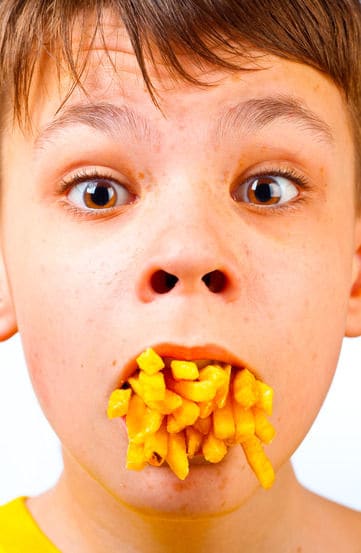

There are many possible reasons for feeling tired during the day, with a lack of sleep being the top candidate. However, if insomnia or health issues are not responsible for your fatigue, the foods you are eating could be the source. If you are anything like the average American, be aware that consuming any of three types of foods could explain why you consistently run out of steam.
A feeling most of us are familiar with, it is normal to be tired now and then. There can be many causes for tiredness, including:
- Anemia
- Hypothyroidism
- Heart disease
- Diabetes
- Kidney disease
- Liver disease
- Lung disease
- Obesity
- Allergies
- Anxiety
- Sleep problems
- Vitamin/Mineral deficiency
- Depression
- Medication side effects
Whether or not any of the conditions listed above help explain your fatigue, avoiding certain foods can help prevent afternoon sleepiness. Experts continually reference eating a healthy diet as a means to feel energetic, but details on what to avoid are glanced over far too often. If fatigue seems to plague you, make sure to reduce or avoid consumption of the following:
- Caffeinated Beverages – Even though many of us turn to caffeine for a burst of energy, caffeinated coffee, soda, pep pills and energy drinks actually foster fatigue. This is because caffeine activates the nervous system, a physiological process that expends energy. The excessive neuron activity spurred by caffeine consumption causes the adrenal glands to produce adrenalin, giving the person a short, chemically induced burst of energy. When this adrenal high wears off, you feel the drop in terms of fatigue, irritability, headache or confusion – setting the stage for a roller coaster type of cycle that can exhaust the adrenal glands and cause chronic fatigue.
- High Glycemic Foods – Frequently referred to as white, starchy carbohydrates, foods high on the glycemic index are a major contributor to fatigue. Examples of high glycemic foods include white bread, white rice, sugary cereals, traditional pastas, crackers, tortillas, potatoes, donuts, bagels, pastries and cookies. The glycemic index is a numerical scale used to indicate how fast and how high a particular food can raise our blood glucose (blood sugar) level. The higher on the glycemic index scale, the faster the food is broken down into sugar. High glycemic carbohydrates enter the blood stream fast, but the effect they have is very short-lived, leading to an initial burst of energy that is followed by an energetic crash when blood sugar levels drop just as fast as they rose.
- Fatty Foods – Fried foods (like fried chicken, mozzarella sticks and French fries), meats with a high fat content (like bacon, steak and foie gras), rich sauces (butter-based, mayonnaise-based or cream-based) and oily snack foods (like cheese curls, corn chips and potato chips) can make you tired. The reason this occurs is simple: the digestive system must work harder and expend more energy than usual to metabolize fat. Since the body uses a disproportionately large amount of energy just to break a recently ingested fatty meal down, there is less available to keep you feeling peppy.
A typical American floods their body with foods (and drinks) from these three categories, yet they don’t connect their diet with fatigue. Breakfast consisting of a bacon, egg and cheese sandwich on a white roll and a cup of coffee, late morning snack of another cup of coffee and bagel with cream cheese, lunch of pizza and caffeinated soda, afternoon snack of chips or candy plus an energy drink and dinner of fried chicken or steak with mashed potatoes and another soda describes a regular day’s food for millions. It’s no wonder that so many Americans complain of being tired. Even if a few fruits and vegetables are thrown into this type of diet, repeatedly consuming caffeine, high glycemic foods and fatty foods will drain your energy and lead you into a constant battle against fatigue.




